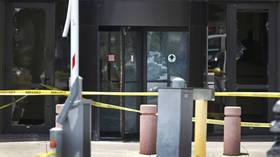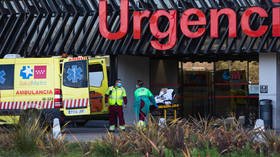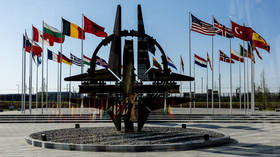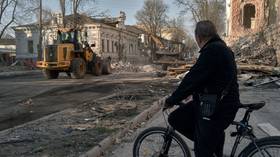Doctors are sending out ‘do-not-resuscitate’ forms telling people like my disabled daughter to sign them, I find that chilling
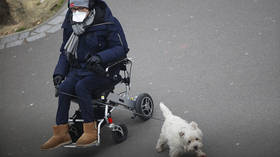
I get that Covid-19 means difficult medical decisions have to be made about who gets treatment and who doesn’t. But telling the disabled and already sick to sign away their rights in advance is asking them to volunteer for death.
As the parent of a disabled child, you need to become an expert at juggling all the balls you must keep in the air if you want to become the parent of a disabled adult, as I am fortunate enough to be.
In all my 18 years of helping to look after my lovely daughter Elvi, I’ve never been so scared for her future as I am in this Covid-19 pandemic. Drop one of those balls at this time, and I could be signing my child’s death warrant.
It’s not just because the virus could be significantly more lethal for her. It’s also because some doctors may take the view that my daughter’s life is much less worthy of medical care compared to able-bodied people.
It has emerged this week that some GPs around Britain have been sending out letters to patients with existing health issues asking them to sign Do Not Resuscitate (DNR) forms, in case they catch the coronavirus and their condition worsens.
So that’s that, then. It’s asking these people to volunteer for death.
Also on rt.com ‘Culling’ the old & weak: Eugenics and social Darwinism rear their ugly heads in the Covid-19 pandemicI now hold my breath every time the postman comes. Is today the day the letter with the DNR form arrives? While I suppose it might be handy to be identified as a vulnerable family so we can finally book an online grocery delivery, the cost of what these GPs are asking us to do is too unbearable to even think about.
It’s hard to tell if our medical centre will be one of those following such a procedure. You can’t quiz them. Have you tried ringing a doctor recently?
A GP surgery in Wales that sent out the request for people to sign a DNR if they hadn’t already, said the benefits included doctors, family and friends knowing not to call 999 if a loved one's condition worsened, thereby saving “scarce ambulance resources” and risking any transmission of the coronavirus to others.
If such disabled or ill people who refused to sign such forms were to make it to hospital, of course, a decision on DNR would be made by hospital staff, without any consultation. And not just for people who had serious underlying health problems, but even for those with learning difficulties.
Learned today of DNR applied by a hospital for one of the people we support; man in his 50s, no underlying health condition and great quality of life. Family not consulted. Can only conclude ReSPECT form put in place because he has a learning disability. https://t.co/5UnGLKvsun
— Andrew Cannon (@VoyageCEO) April 1, 2020
Ever since evidence from Italy that there was something desperately wrong started to appear on the evening news, we have seen doctors in despair over the God-like choices they have to make between who should live and who should die, about who should be treated and who shouldn’t. It has become obvious that the decision is about who will have the better quality of life if they survive.
In the UK, DNR paperwork effectively throws the choice back to the patient, urging them to choose to die rather than risk being a burden to the health service. And while people with serious underlying health issues could fail to make the grade in many cases, it’s those with disabilities who are facing the DNR roulette as well.
It’s an unimaginable rock and a hard place. And that terrifies the hell out of me.
Elvi, my eldest daughter, turned 18 last year and her mother and I applied for the legal approval of joint deputyship to make decisions on her behalf as she enters adulthood. The two separate areas governed by this are finances and health. We opted for the financial side as a matter of urgency, seeing no health issues needing to be made on her behalf on the horizon. No one had even heard of coronavirus six months ago.
Not having the final say over our now-adult daughter’s health and welfare was considered something we could address down the road if and when we came to that junction.
Well, we are now there a whole heap sooner than we thought. Because if my daughter contracts Covid-19 and is admitted to hospital, then who will make the decisions needed on her behalf? Legally, we, her parents, have no say about how she will be treated. We may not even be allowed to be with her. I can only start to imagine the confusion and panic she would face if she is admitted to hospital feeling very poorly without those who care for her day-to-day allowed to assist in her treatment or even be by her side.
Also on rt.com Heart-wrenching video of boy with dwarfism threatening suicide as mum admits despair is no shock to this father of a disabled kidThe recent weeks of family isolation with her shouting constant demands for crisps, pizza and various TV shows from her bedroom, struggling to communicate with us and getting hugely upset at the disruption to her regular schedule have been testing enough in the well-loved surroundings of home.
Elvi is largely non-verbal on top of her physical and learning disabilities and, while legally an adult, would have absolutely no idea about what would be going on in an unfamiliar environment, or be able to find a way to let those treating her know how distressed she had become. The only way to deal with her in this situation would be to keep her constantly sedated.
A couple of years ago, when facing a dental procedure under anaesthetic, she had to be sedated while still in the waiting room as she became so upset, screaming and lashing out at those trying to help. It is an anecdote I relate only to give you some idea of what we are dealing with.
If she is infected by the virus – her carer and that poor woman’s entire family have had it, and recovered – and needs hospitalisation, then the best we can hope for is that she is in a place where people know her, and us, and can tailor any treatment required.
The only alternative to that seems to be a lonely bed in a converted exhibition centre where medical staff are unfamiliar with the complex young woman in front of them, and may be forced to make life or death decisions without any input from her family.
And that is, frankly, the stuff of nightmares.
Think your friends would be interested? Share this story!
The statements, views and opinions expressed in this column are solely those of the author and do not necessarily represent those of RT.




